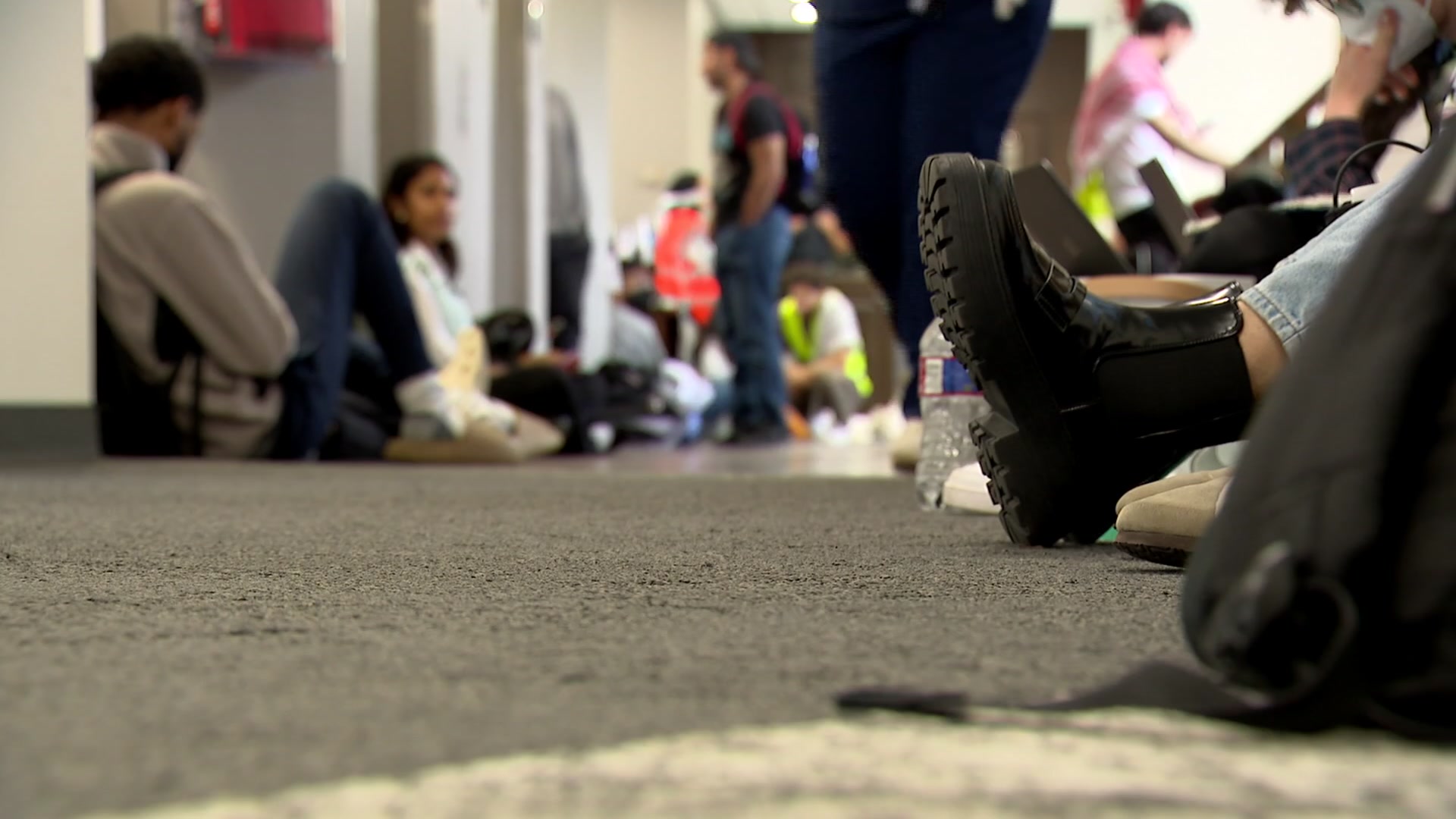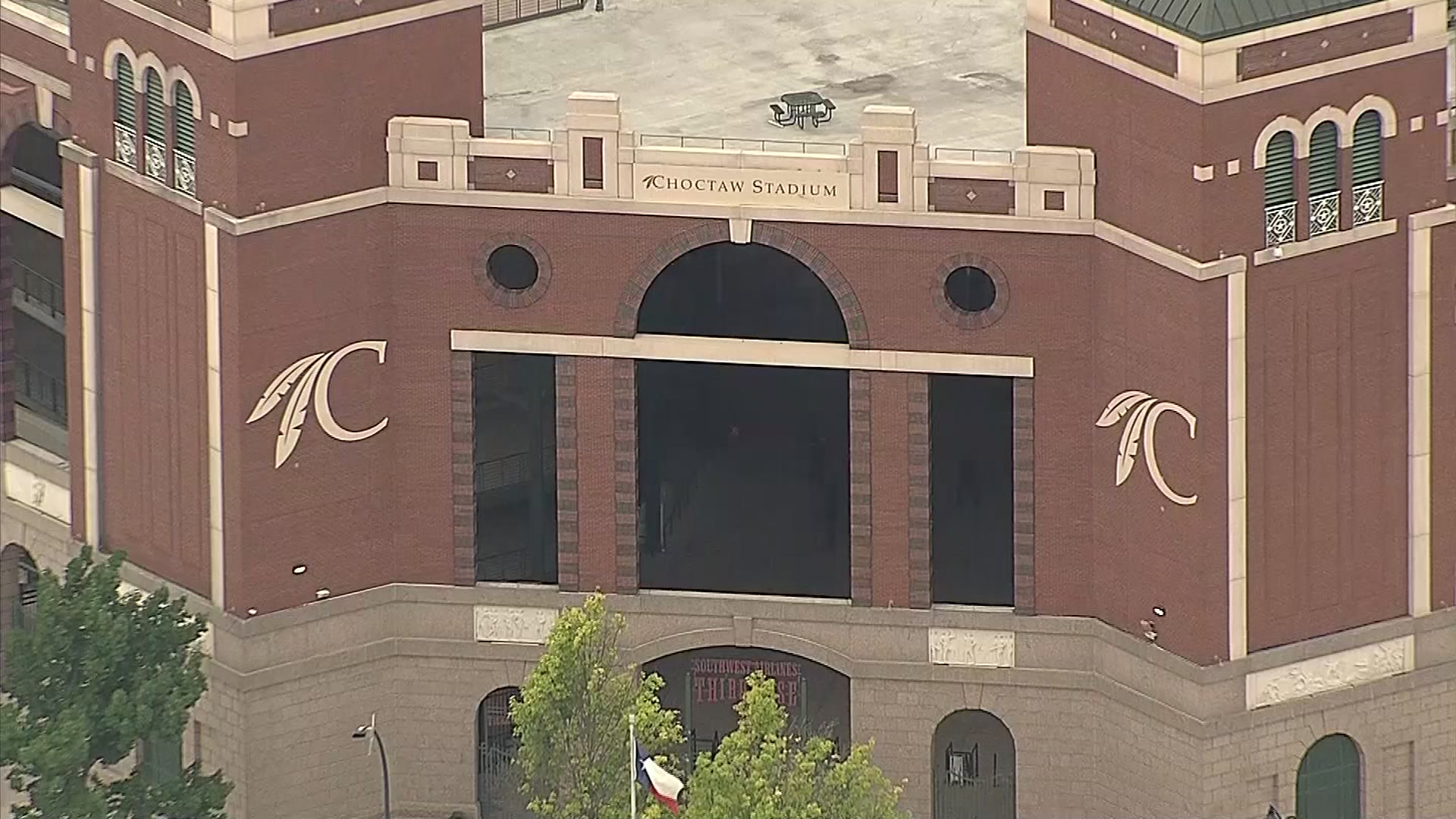Union leaders representing mechanics and flight attendants at American Airlines are calling for the immediate grounding of 737 Max 8 planes after two deadly crashes in six months.
"We all think right now they should err on the side of caution, ground the airplanes and try to figure out what was going on," said Gary Peterson, vice president of the Transport Workers Union.
The president of the Association of Professional Flight Attendants, Lori Bassani, echoed the concern.
"We think it's best to err on the side of caution and ground these aircraft temporarily," Bassani said.
The Allied Pilots Association, which represents American's pilots, said it was confident in the Boeing 737 Max 8 and its "members' ability to to safely fly it."
The two disasters -- Sunday in Ethiopia and last fall in Indonesia -- both involved Max 8 planes and happened soon after takeoff.
It's still unclear what caused both planes to crash.
Local
The latest news from around North Texas.
But The Dallas Morning News reviewed an anonymous database of pilot concerns.
One captain wrote that the Max 8 flight manual was "inadequate and almost criminally insufficient," The News reported.
One specific concern focused on a system designed to keep planes safe during takeoffs.
"But what actually happens is when it senses a certain angle of the plane, it tilts the plane nose down in response to that angle to make sure it doesn't lose too much speed and can stay up," Dallas Morning News reporter Cary Aspinwall said.
Southwest Airlines and American Airlines issued similar statements saying they remained confident in the safety and the airworthiness of the Max 8 planes and did not plan any changes.
Meanwhile, passengers took notice.
Kathleen Bonilla of Frisco and her family were headed from DFW International Airport to Lake Tahoe for a ski trip.
"It is a concern and I did actually look before I came to make sure I wasn't on one of those planes," she said.
Southwest Airlines issued the following statement Tuesday night.
“After operating more than 41,000 MAX 8 flights, we remain confident in the safety and airworthiness of the aircraft. We do not have any changes planned to our MAX 8 operations.”
And American Airlines issued this statement.
“American Airlines extends our condolences to the families and friends of those onboard Ethiopian Airlines flight 302. The safety and security of our team members and our customers remains our top priority. We will continue to comply with all FAA guidelines, and believe the Boeing 737 MAX aircraft is safe and that our pilots are well-trained and well-equipped to operate it.
The FAA today reiterated that they continue to extensively review data from multiple operators and pilots who fly the 737 MAX, and have found no basis to order grounding of the aircraft. American also regularly monitors aircraft performance and safety parameters across our entire fleet, including extensive flight data collection. That data and analysis, along with our strong safety record and the FAA's guidance, give us confidence in the safety of our fleet.
Our Flight, Flight Service, Tech Ops and our Safety teams, along with the heads of our pilot and flight attendant unions, continue to closely monitor the accident investigation, and are eager to have a better understanding of the cause of this recent accident. We also remain in close coordination with the FAA, NTSB and Boeing, as well as other operators of this aircraft type as the safety of all crew members and customers is a priority shared by all airlines.
In November 2018, we received the Boeing-issued Flight Crew Operations Manual Bulletin and subsequently issued FAA Emergency Airworthiness Directive, which applied to all of the B737 MAX 8 aircraft currently in our fleet. We complied with the Emergency Airworthiness Directive, which reiterated procedures already in the Quick Reference Handbook (QRH) for non-normal events. The Emergency Airworthiness Directive reiterated existing, well-established procedures for MAX 8 pilots. At American, we have not had similar issues regarding an erroneous Angle of Attack during manual flight.”
Read the full statement from the Allie Pilots Association below.
“The Allied Pilots Association (APA), representing the 15,000 pilots of American Airlines, remains confident in the Boeing 737 Max and in our members' ability to safely fly it.
The pilots for the world's largest airline have the necessary training and experience to troubleshoot problems and take decisive actions on the flight deck to protect our passengers and crew. Our pilots are a major reason why American Airlines is an industry leader in aviation safety.
In the wake of the tragic loss of Ethiopian Airlines Flight 302 on Sunday, people around the world are jumping to conclusions about the Boeing 737 Max. Federal and international authorities have just begun to look into Sunday’s accident. It is too early to determine possible causes.
APA and American Airlines jointly operate a Flight Operations Quality Assurance (FOQA) program that monitors all AA flights. We get notification of anything that would be a precursor to the maneuvering characteristics augmentation system (MCAS) activating. We have reviewed data for more than 14,000 flights since the Lion Air Flight 610 accident in Indonesia last October, and we have not seen a single anomaly related to the MCAS.
The flying public should also be aware that American Airlines' Boeing 737 Max planes are unique. After the loss of Lion Air Flight 610, Boeing disclosed that the MCAS can be triggered by a single erroneous Angle of Attack (AOA) event. The two dozen 737 Max aircraft in the American Airlines fleet are the only ones equipped with two AOA displays, one for each pilot, providing an extra layer of awareness and warning.
The Federal Aviation Administration, which is on site in Africa with the National Transportation Safety Board, has issued a Continued Airworthiness Notification to the International Community (CANIC) for Boeing 737 Max operators. We look forward to them completing their investigation and sharing the facts it will reveal.”



